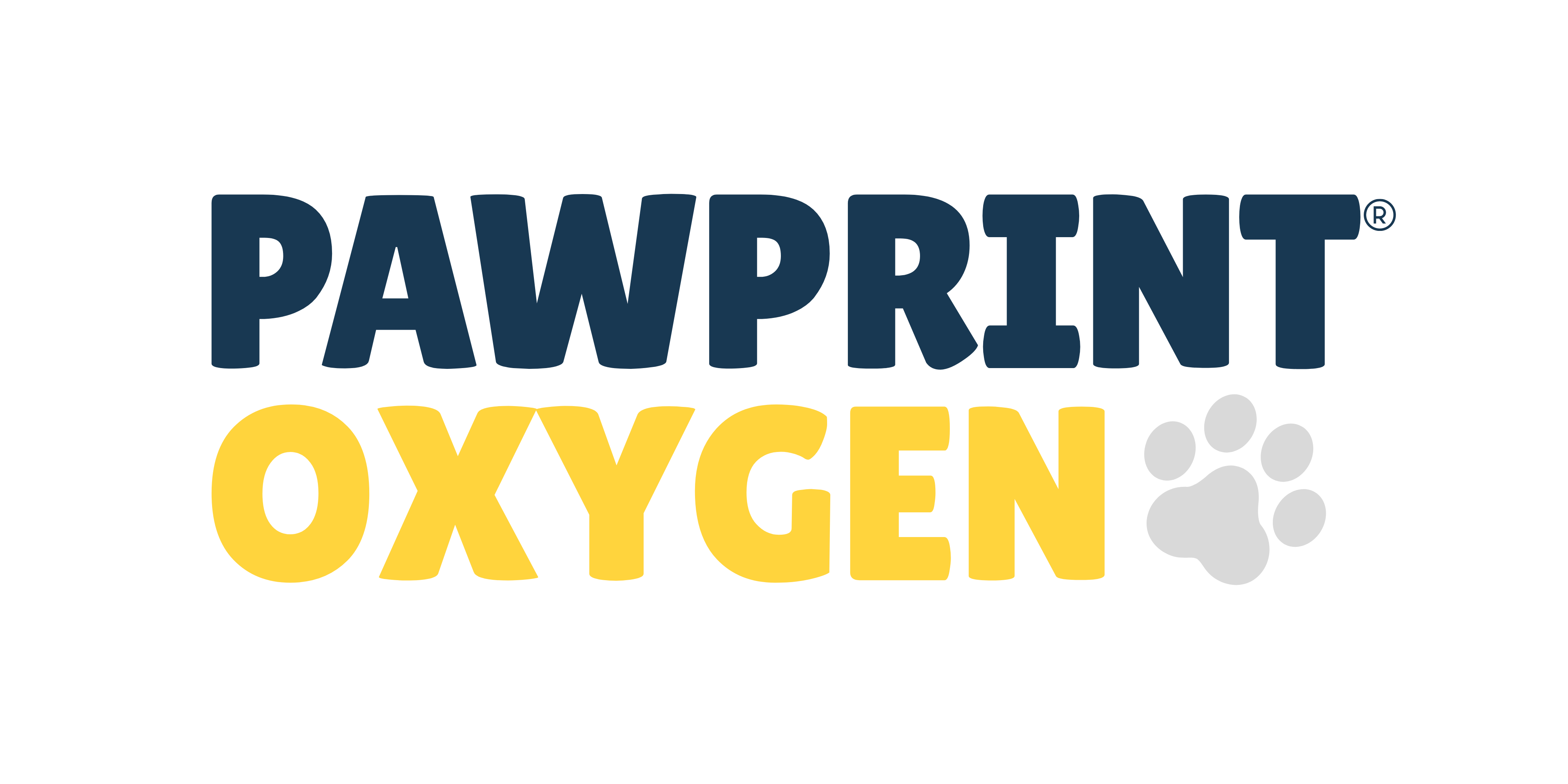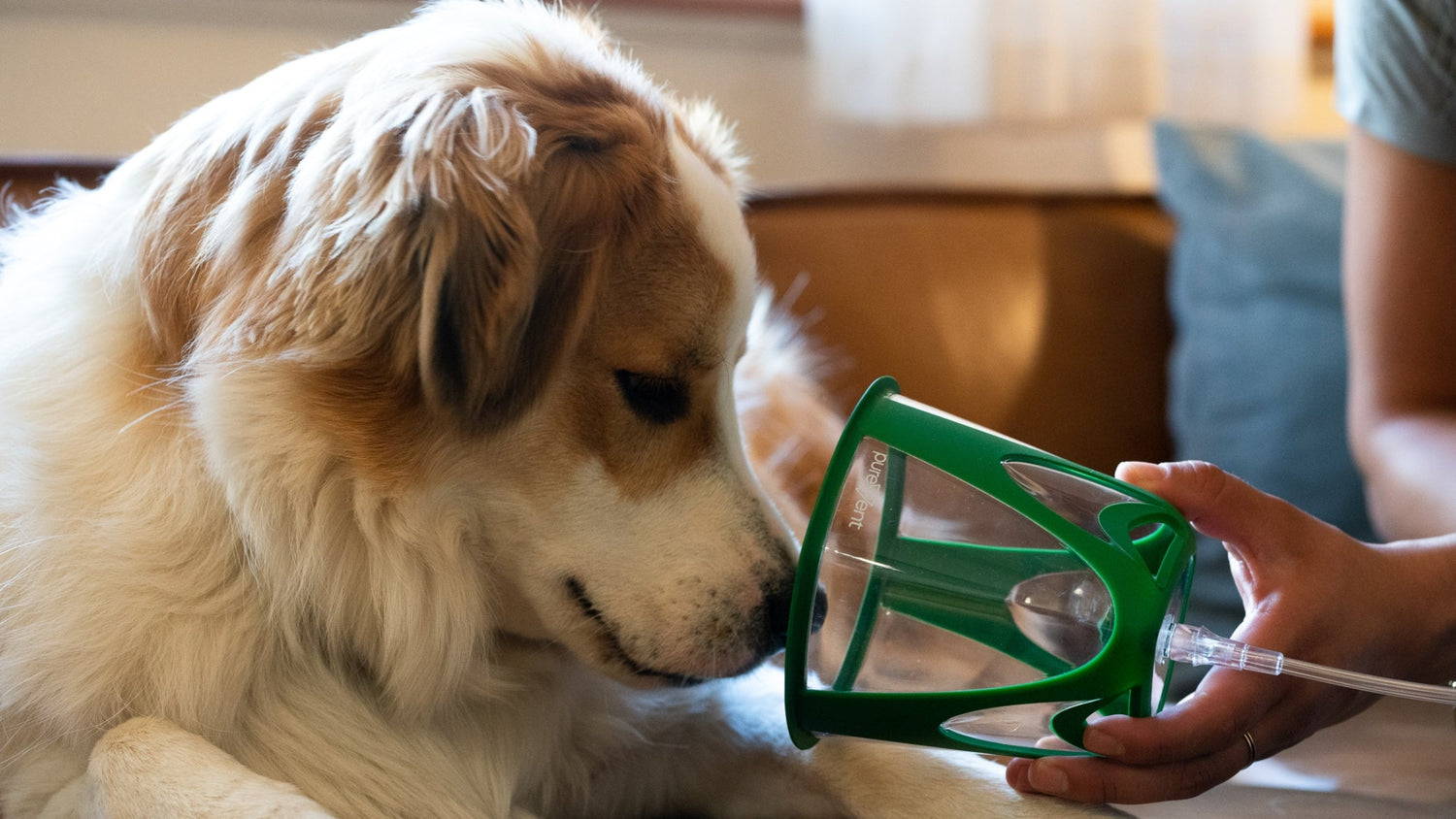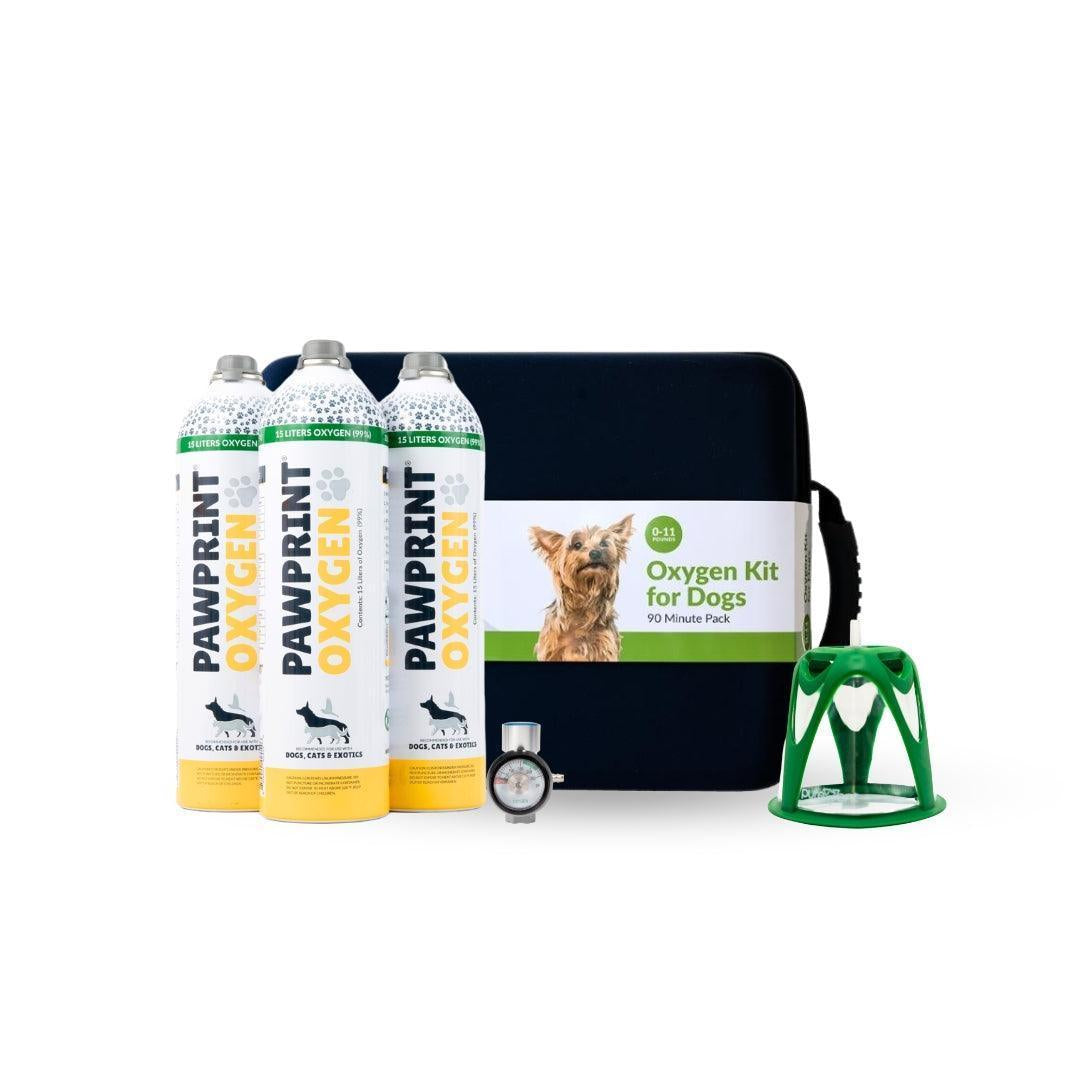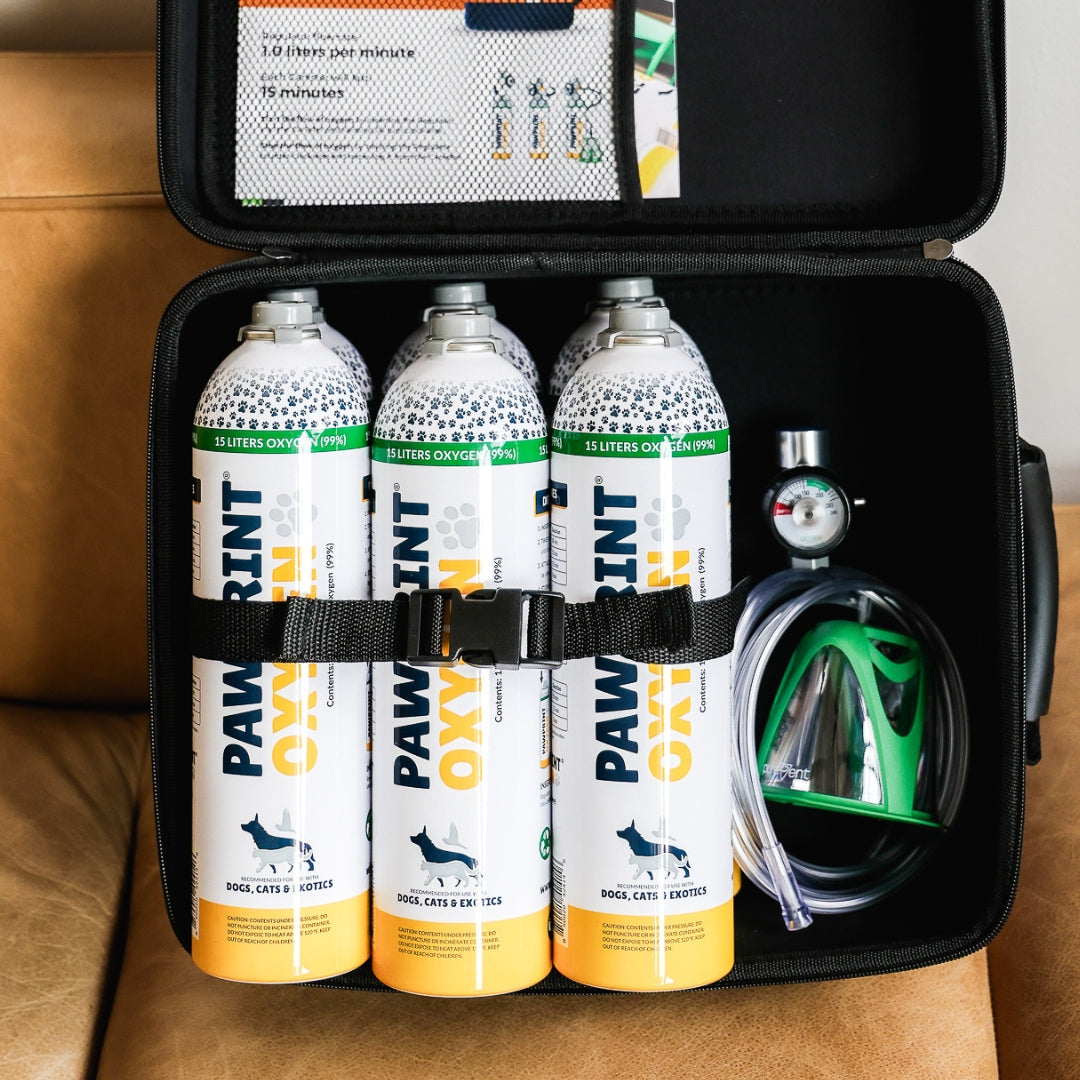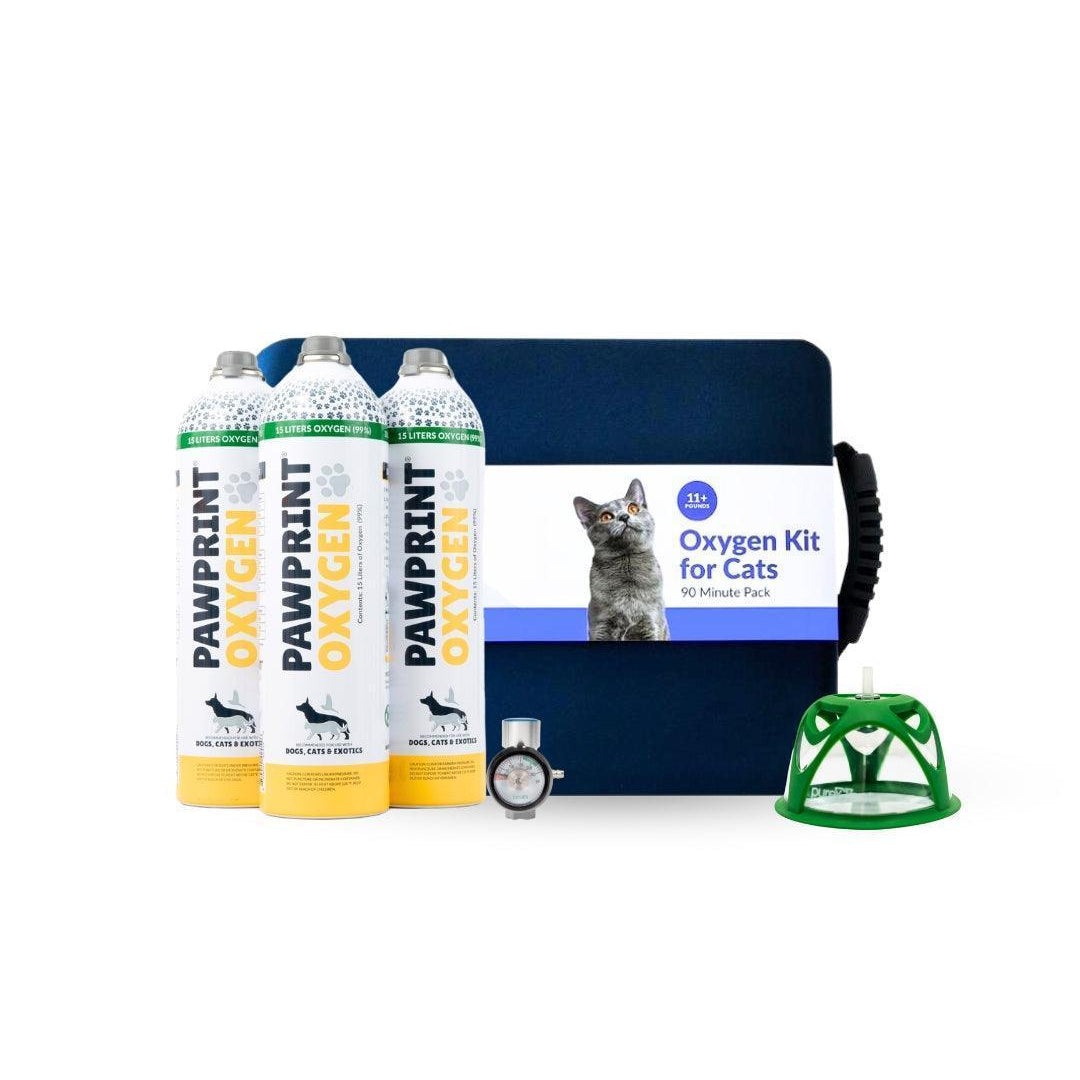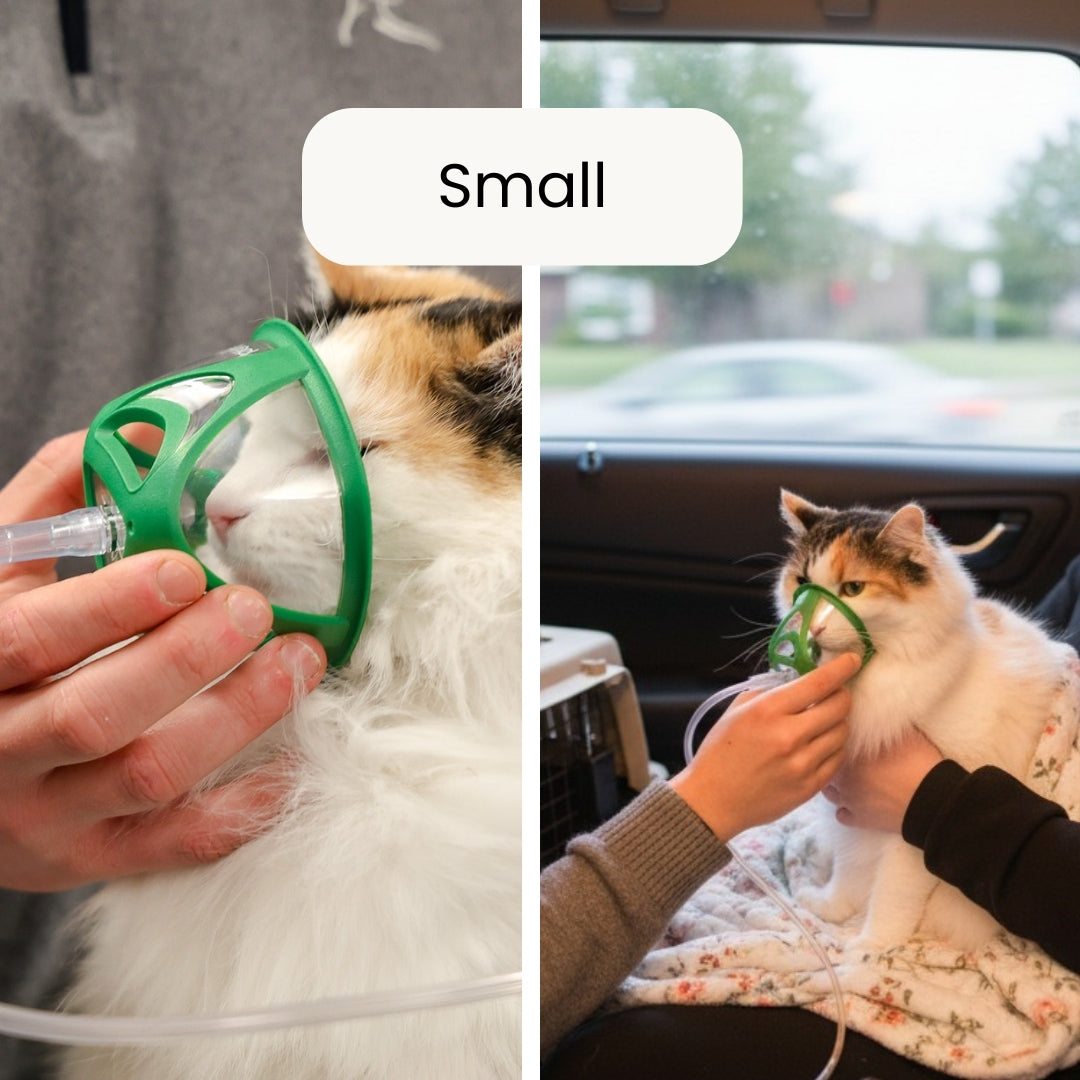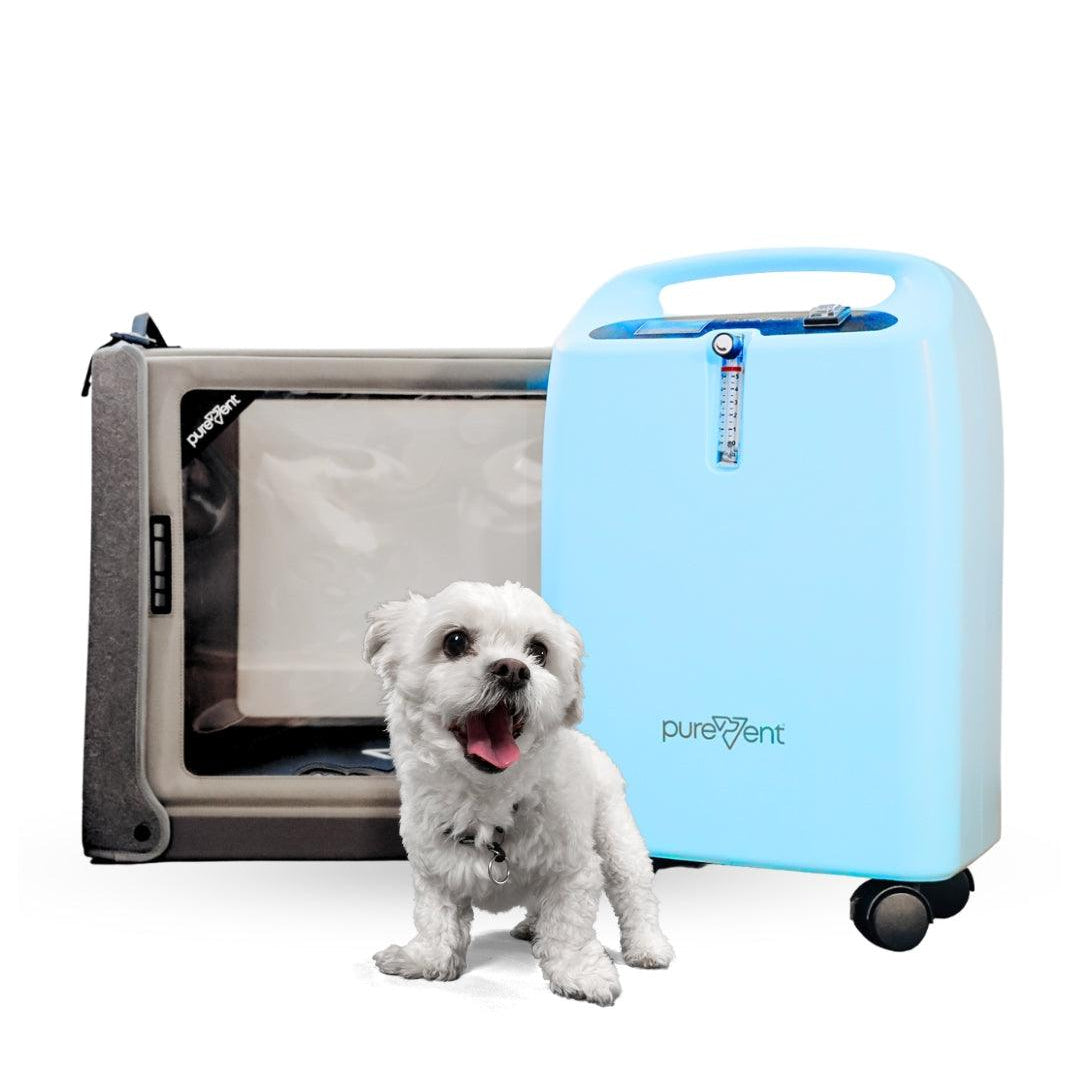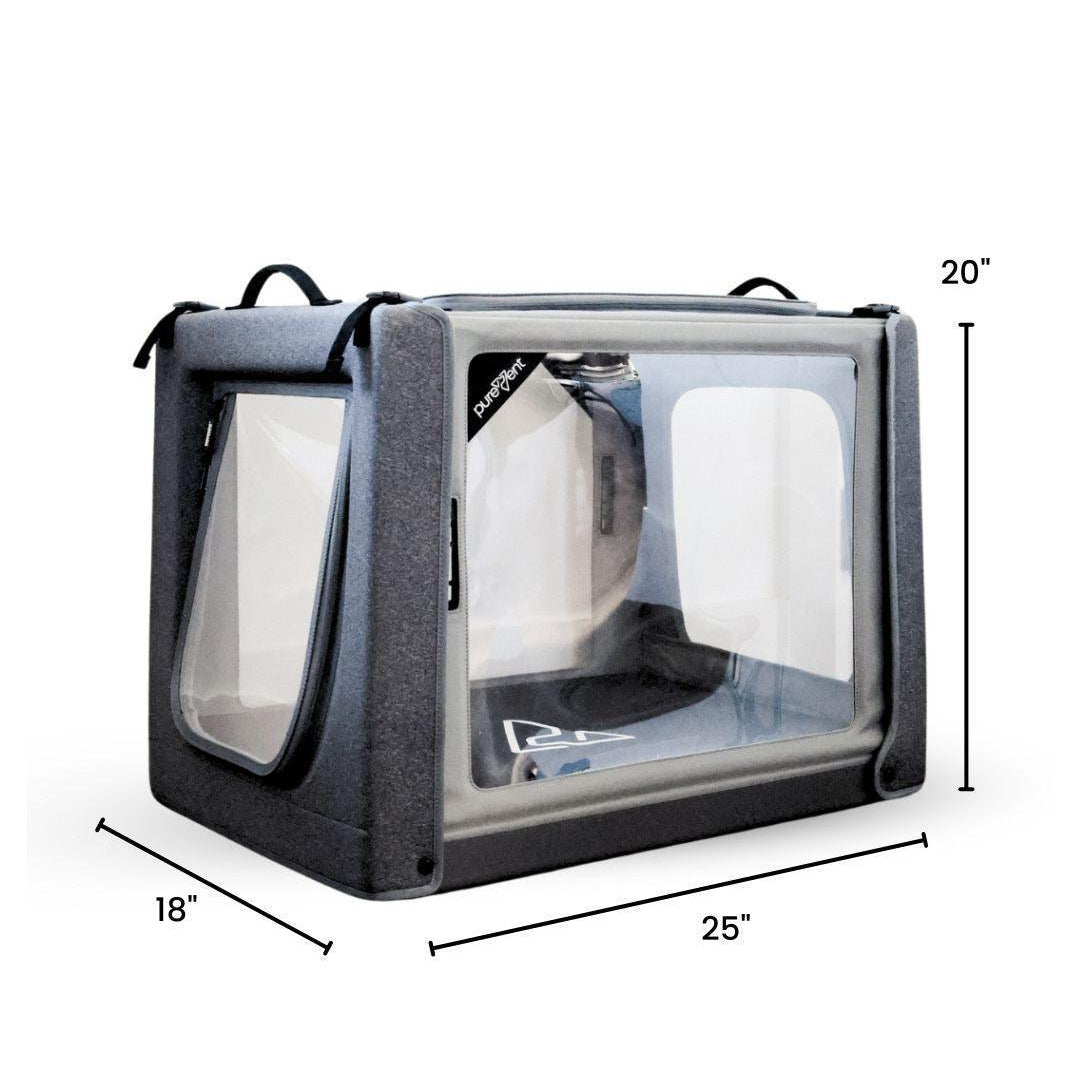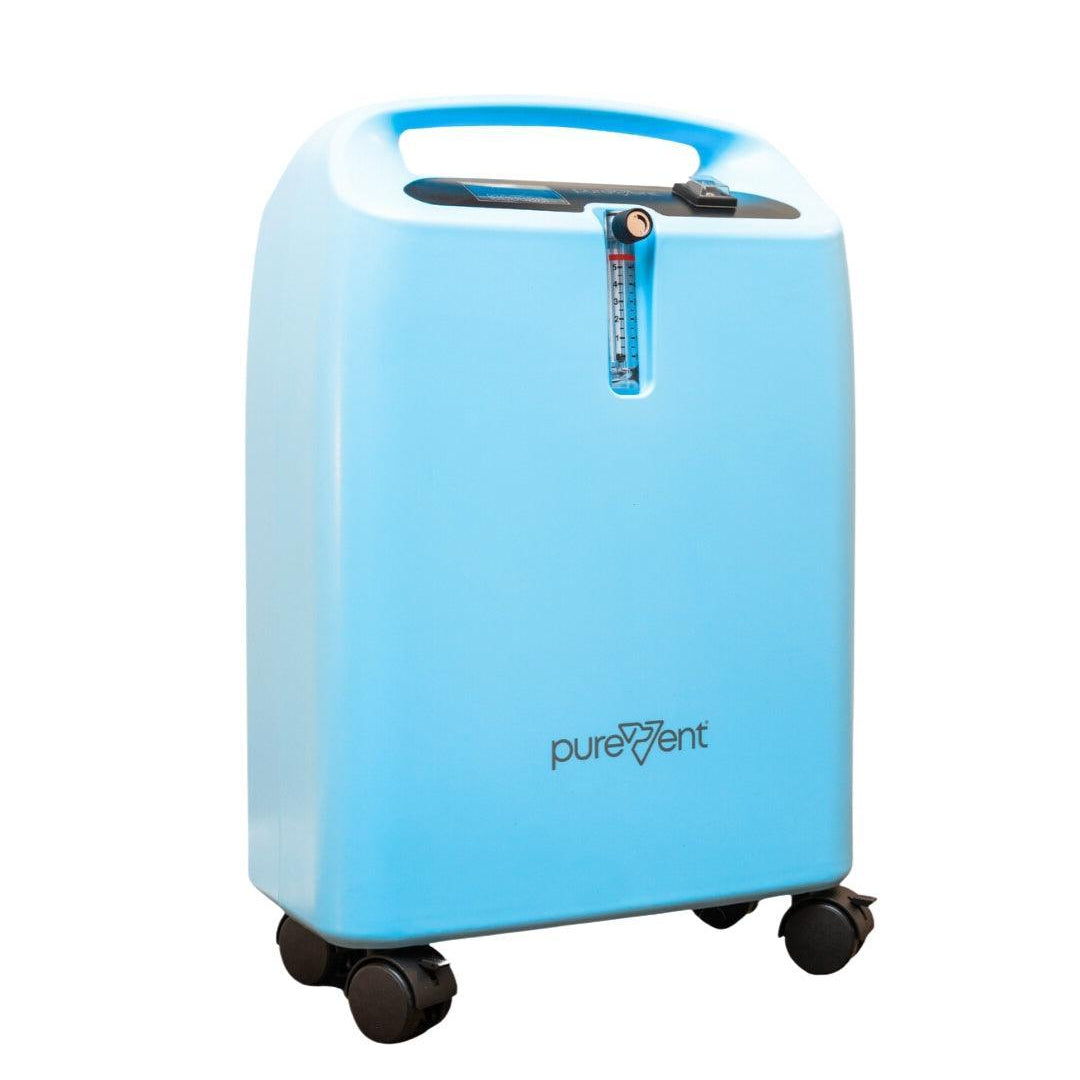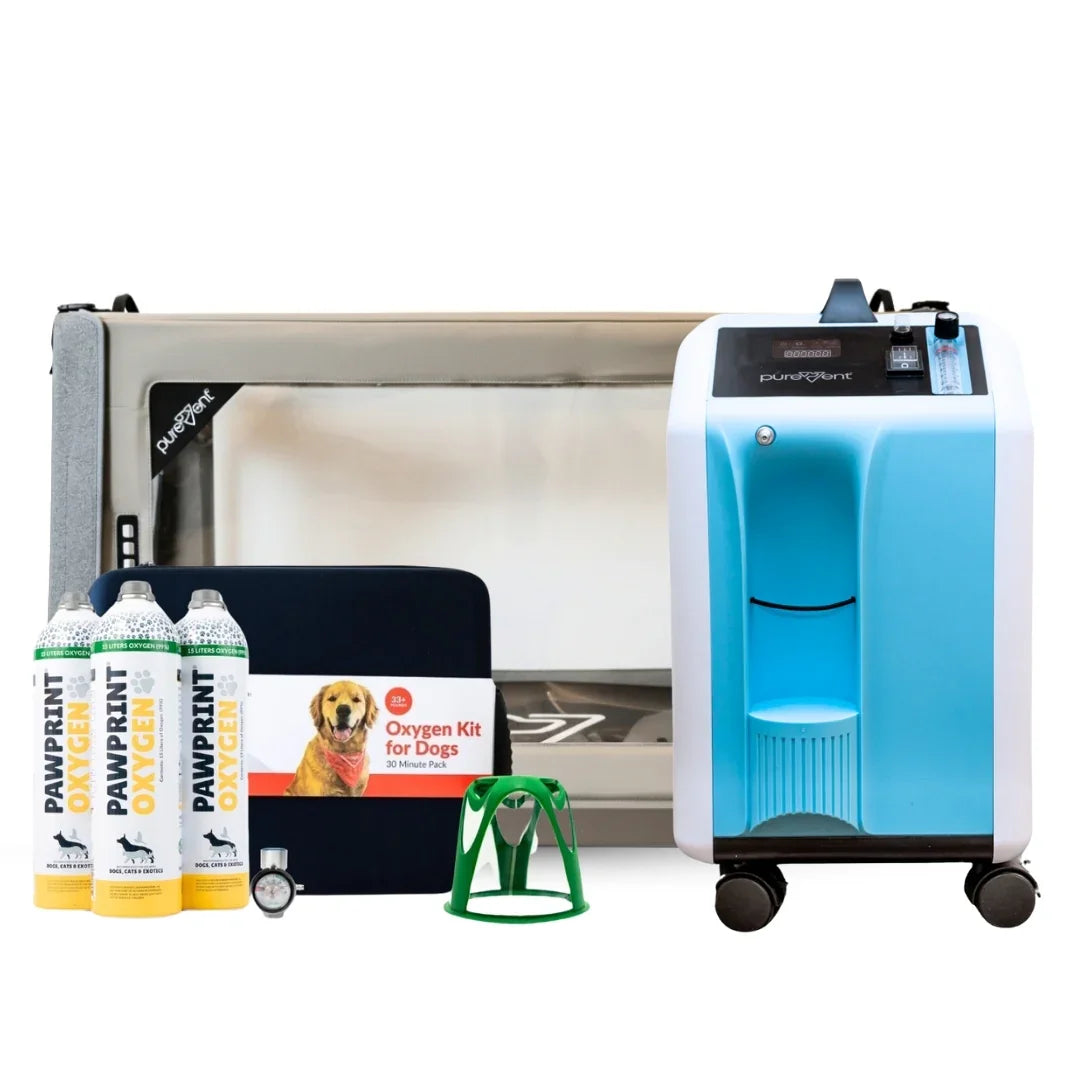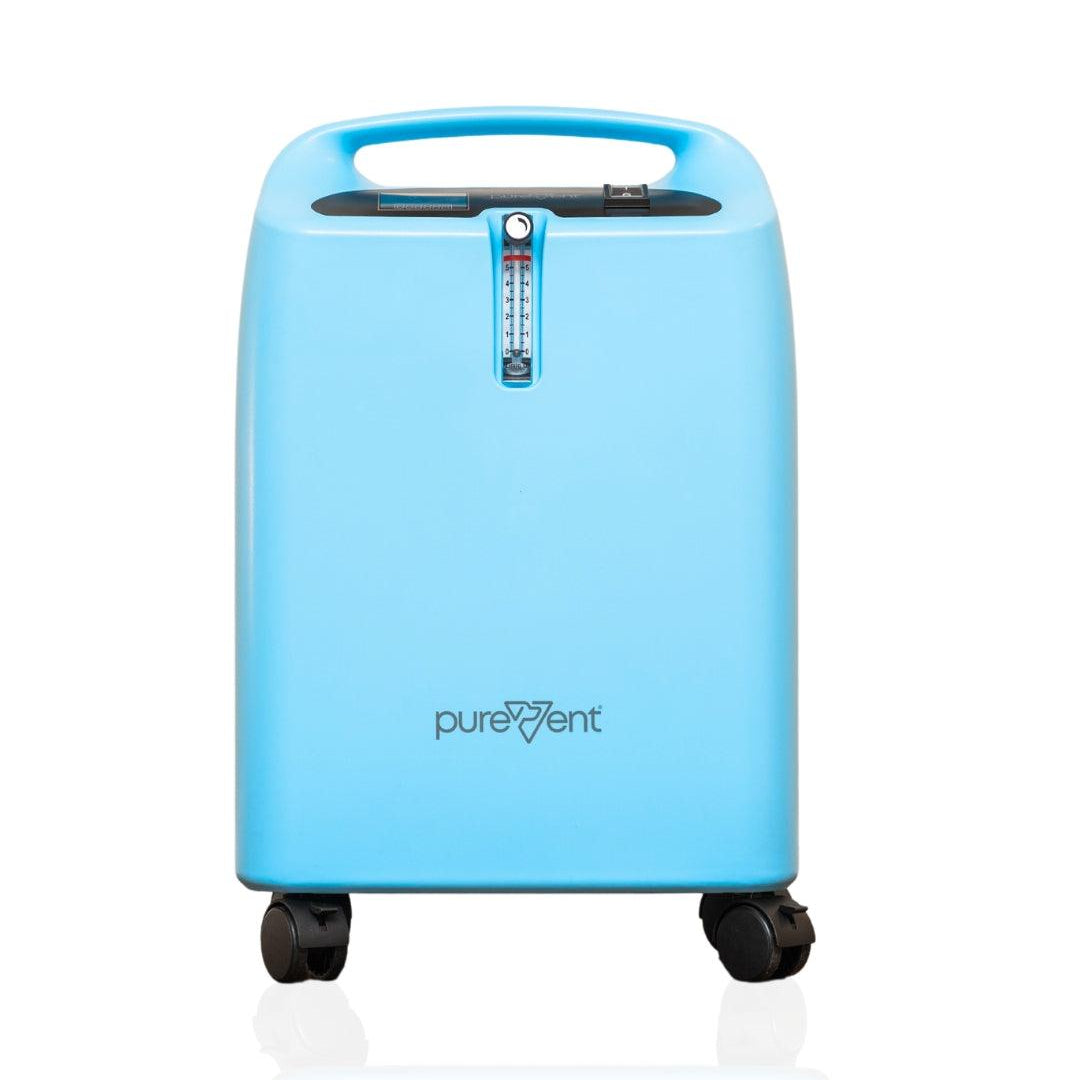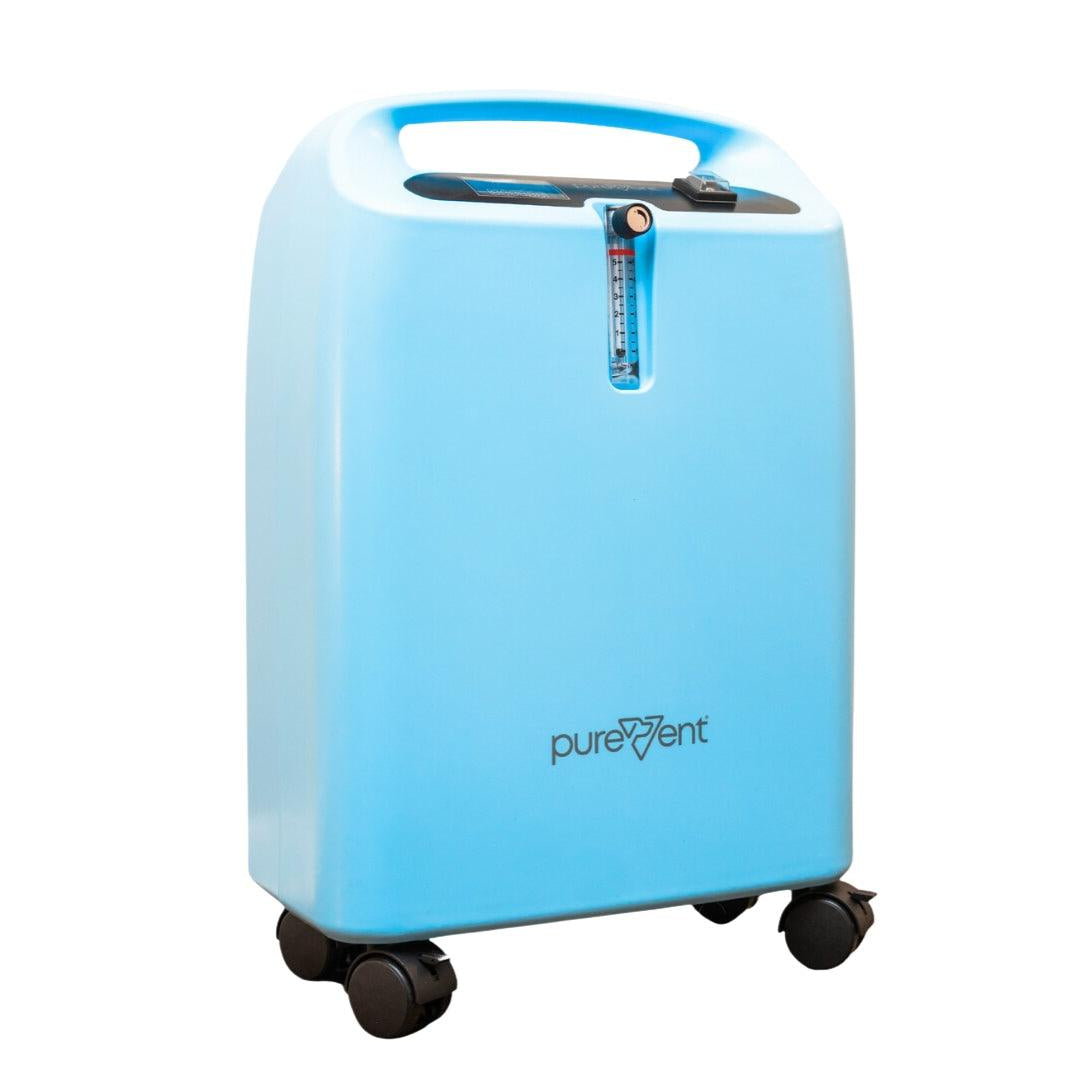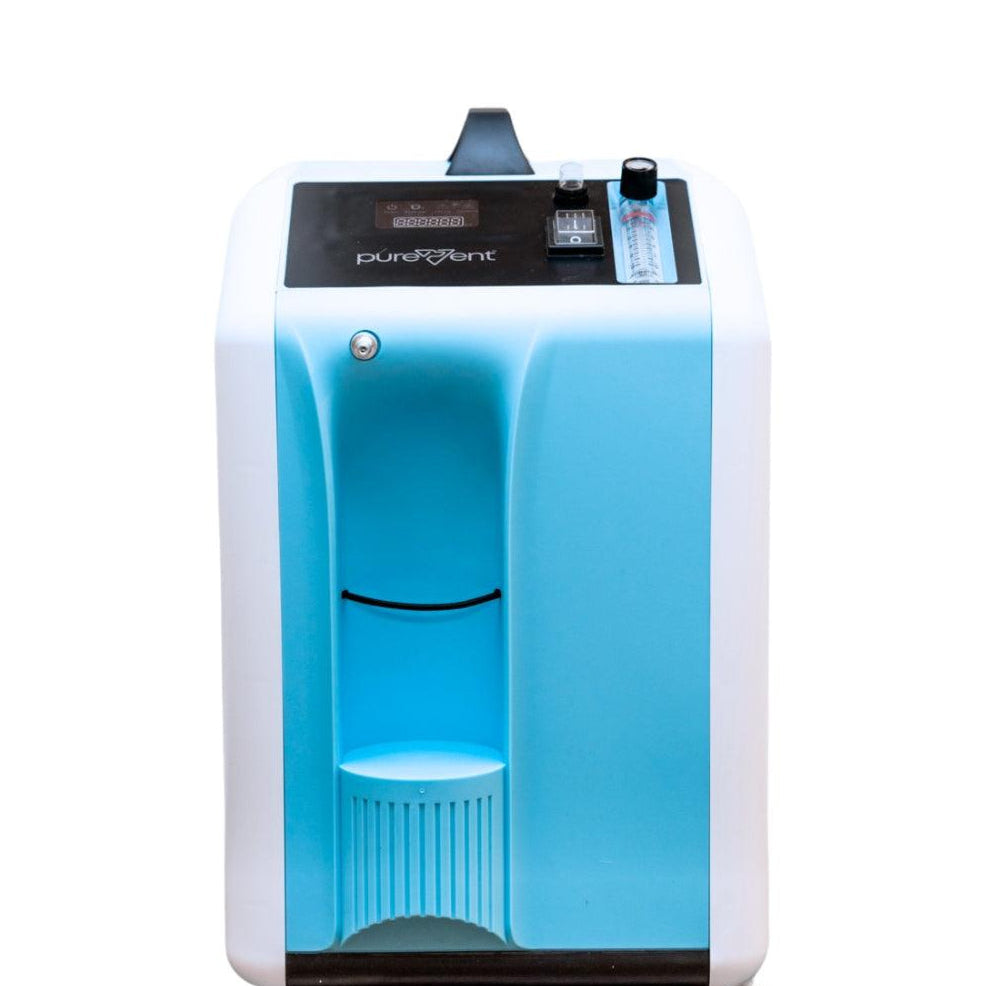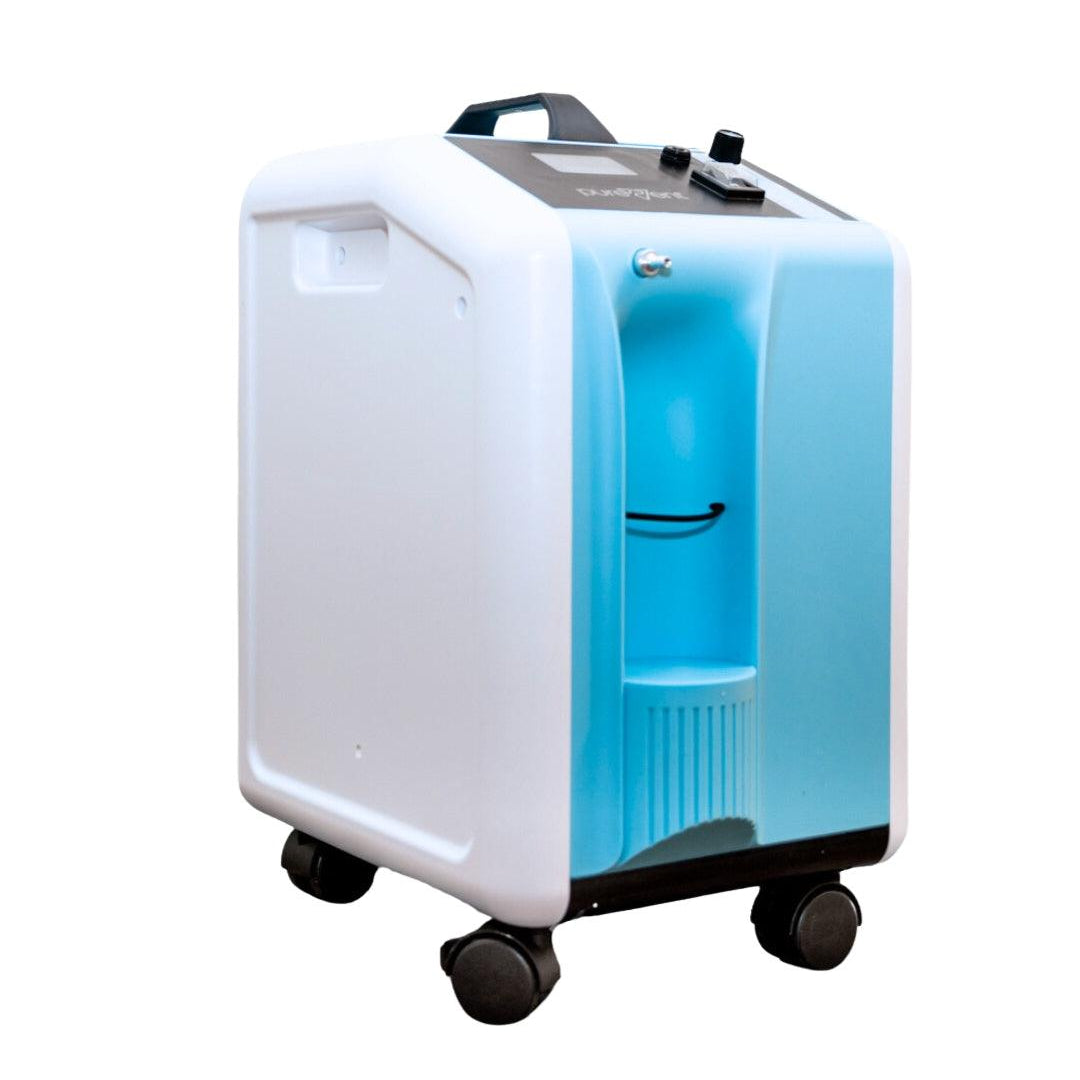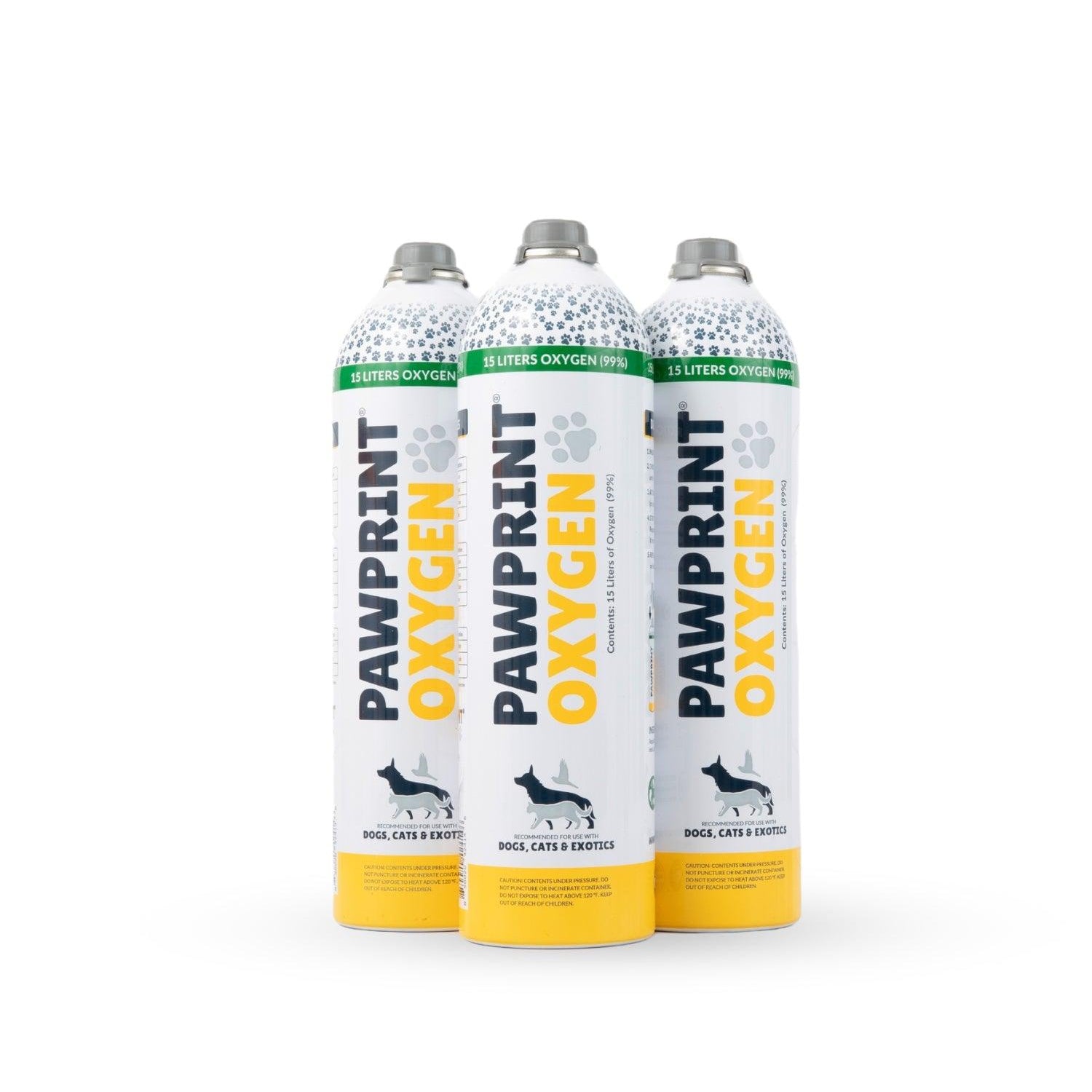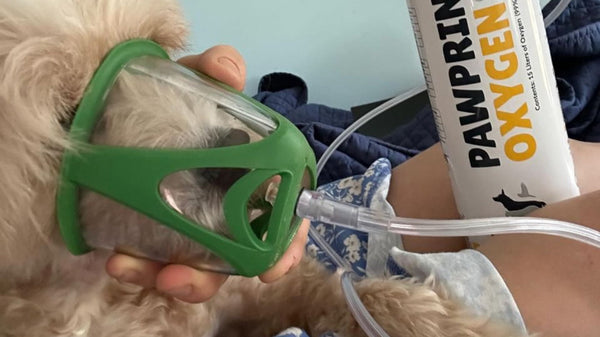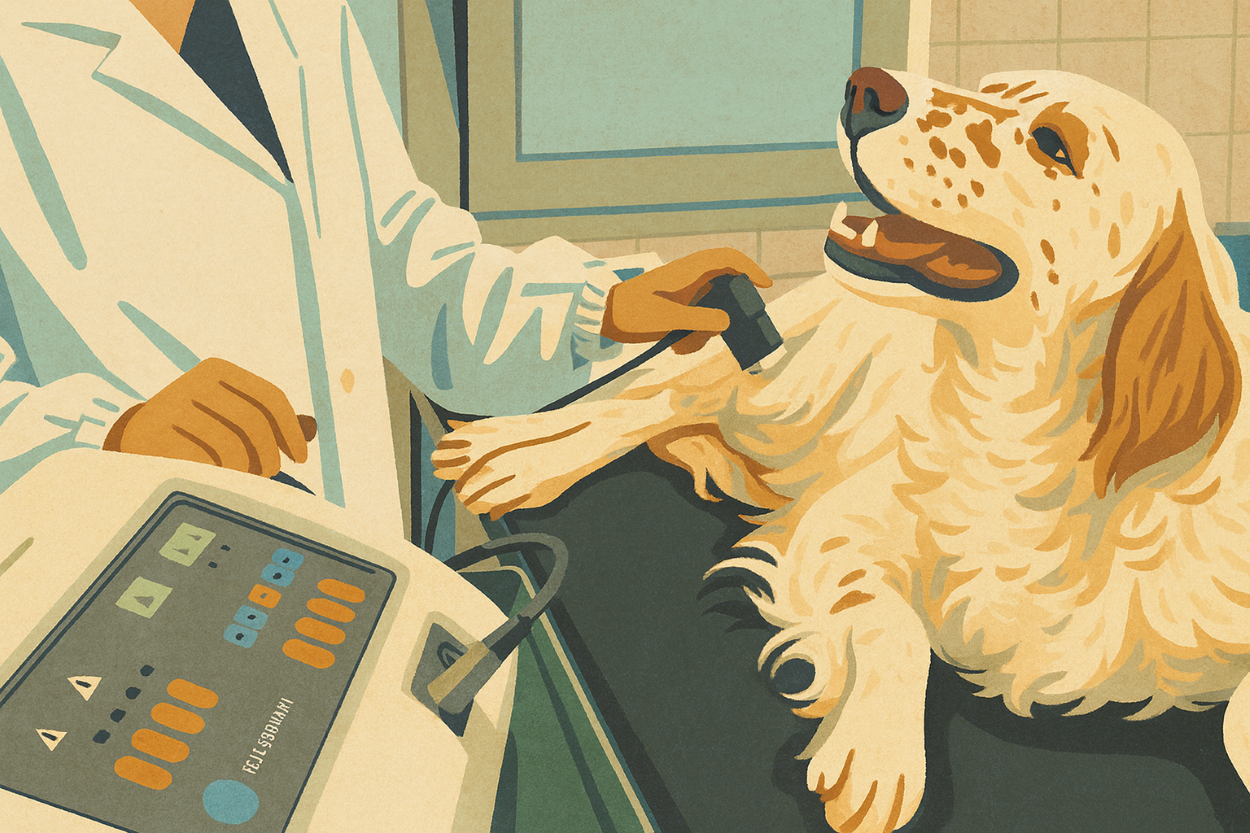Congestive heart failure in pets occurs when the heart cannot pump efficiently, leading to fluid buildup that can impair breathing and overall comfort. While this condition isn't curable, oxygen therapy, heart medications, and lifestyle changes can significantly alleviate symptoms and improve your pet’s quality of life, especially during emergencies. Lifestyle adjustments include avoiding overexertion and exhaustion while exercising.
What is Congestive Heart Failure (CHF)?
Congestive heart failure is a disease that occurs when the heart is unable to pump enough blood to meet the body's needs. It can result from an inherited defect in heart valves or muscle, or it can be caused by high blood pressure, coronary artery disease, diabetes mellitus, and other conditions. Congestive heart failure in pets occurs most often in middle-aged dogs and cats; however, young animals may be affected as well.
Table of Contents

Congestive heart failure in pets can lead to fluid build-up in the lungs and other parts of the body, causing them to become congested.
The main symptoms of congestive heart failure in pets are coughing, breathing difficulties and weight gain. Other symptoms include leg swelling, increased thirst and urination, fatigue or shortness of breath during exercise. Causes of congestive heart failure in pets include high blood pressure (hypertension), heart valve disease and congenital defects of the heart.
The Differences Between Right-Sided and Left-Sided Congestive Heart Failure in Pets
Understanding the differences between right-sided and left-sided congestive heart failure in pets is key to providing effective care. While both impair the heart’s ability to pump blood, they affect the body in different ways and call for distinct treatment approaches. Left-sided CHF is more common, and because symptoms differ between the two types, veterinarians closely evaluate clinical signs to determine the correct diagnosis and treatment plan. Recognizing these differences helps pet owners act quickly to support their pet’s heart health and overall well-being.
Right-sided Congestive Heart Failure in Pets (RS-CHF)
In right-sided congestive heart failure, some blood leaks backward through the tricuspid valve into the right atrium instead of moving through the lungs for oxygenation. This causes blood to back up into the body’s main circulation, leading to congestion. As a result, fluid can build up in the abdomen (ascites), interfering with organ function, or leak into the limbs, causing swelling known as peripheral edema.
Left-sided Congestive Heart Failure in Pets (LS-CHF)
In left-sided congestive heart failure, the left ventricle cannot effectively pump blood out to the body, causing it to back up into the lungs. This leads to fluid accumulation in the lung tissue, a condition called pulmonary edema, which makes breathing difficult and can result in coughing, rapid breathing, or exercise intolerance. Because these symptoms can worsen quickly, left-sided CHF is considered more immediately life-threatening than right-sided CHF. Prompt veterinary diagnosis and treatment are essential to stabilize the pet and improve their quality of life.
Common Symptoms of Congestive Heart Failure in Pets
Recognizing the symptoms of congestive heart failure is key to early detection and effective treatment. Signs can range from subtle behavior changes to noticeable physical issues, and knowing what to watch for allows you to act quickly. By staying alert and seeking veterinary care at the first sign of trouble, you can help improve your pet’s quality of life and long-term outlook.
Common symptoms of congestive heart failure in pets include:
- Persistent coughing
- Difficulty breathing
- Shortness of breath
- Fainting
- Panting
- Restlessness
- Lack of appetite
- Weight loss, or sometimes, weight gain (caused from retaining fluid)
- Vomiting and/or diarrhea

What Causes Congestive Heart Failure in Pets?
Congestive heart failure in pets occurs when the heart cannot pump blood efficiently, leading to fluid buildup in the lungs, abdomen, or other tissues. Understanding its causes is key to prevention, early detection, and effective treatment.
Common causes include:
Genetic predisposition: Certain breeds, like Cavalier King Charles Spaniels, Doberman Pinschers, Maine Coons, and Ragdolls, are more prone to heart diseases.
Age-related changes: Aging can weaken heart muscles and valves, increasing the risk of conditions like mitral valve disease or hypertrophic cardiomyopathy.
Heartworm disease: This preventable parasitic infection damages the heart and lungs, impairing function.
Chronic high blood pressure: Forces the heart to work harder, weakening it over time.
Cardiomyopathy: Diseases like dilated (dogs) or hypertrophic (cats) cardiomyopathy affect heart muscle strength and structure.
Valve disease: Faulty valves, especially the mitral valve, allow blood to leak backward, straining the heart.
Infections and inflammation: Conditions such as bacterial endocarditis or myocarditis damage heart tissue.
Congenital heart defects: Structural abnormalities present at birth can hinder heart efficiency.
Obesity and poor diet: Excess weight and nutrient deficiencies put added stress on the heart.
By knowing these risk factors, pet owners can take preventive steps, such as regular check-ups, weight management, heartworm prevention, and early veterinary care, to help protect their pet’s heart health.

Is congestive heart failure more prevalent in certain dog breeds?
Yes, congestive heart failure (CHF) is more prevalent in certain dog breeds due to genetic predispositions and breed-specific health concerns.
Dog breeds that may be predisposed to CHF:
- Cavalier King Charles Spaniel
- Miniature and Toy Poodles
- Dachshund
- Doberman Pinscher
- Great Dane
- Boxer
- Irish Wolfhound
- Cocker Spaniel
What foods should I avoid feeding my dog with CHF?
If your dog has congestive heart failure, limit sodium to prevent fluid retention and reduce heart strain. Avoid salty or processed foods like deli meats, cheese, canned goods with added salt, and table scraps, as well as high-fat foods that can lead to obesity. Choose a low-sodium, vet-recommended diet, and ask your veterinarian about taurine or L-carnitine supplements. Unless advised otherwise, steer clear of grain-free diets linked to taurine-deficiency–related dilated cardiomyopathy (DCM).
Can CHF go away on its own, or is it permanent?
Congestive heart failure does not go away on its own and is generally a progressive, lifelong condition. While it cannot be cured, early diagnosis and proper management with medications, dietary adjustments, supplemental oxygen therapy, and lifestyle changes can slow its progression and improve your dog's quality of life.
Treatment for CHF typically includes diuretics to reduce fluid buildup, ACE inhibitors to ease heart strain, and supportive therapies like oxygen or taurine supplementation if needed. Regular veterinary check-ups are essential to monitor heart function and adjust treatment and diet as needed. While CHF is permanent, proactive care can help your dog live a longer, more comfortable life.
Preventing Congestive Heart Failure in Pets
While there is no way to prevent congestive heart failure in pets, certain breeds are genetically predisposed to the disease. Knowing if your pet’s breed is susceptible to CHF may allow you to diagnose the disease earlier, take the appropriate measures to extend the life of your pet and access medication from your veterinarian sooner.
CHF is more common in small-breed dogs, including:
- Chihuahuas
- Yorkies
- Cavalier King Charles Spaniels
- Pomeranians
- Mini-poodles
- Maltese
- Shih Tzus
- Dachshunds
While small-breed dogs have a higher-prevalence of congestive heart failure, large breeds are sometimes affected, and often experience faster disease progression.
Diagnosing Congestive Heart Failure in Pets
Diagnosis is typically based on a veterinarian performing a thorough physical exam and a series of diagnostics. Common diagnostics may include blood tests, radiographs, and an echocardiogram. The veterinarian will use the results of the diagnostics to assess the heart, blood vessels, and lungs to confirm a diagnosis.
Common CHF Treatment Options
Medication is the primary treatment for congestive heart failure in pets, helping to reduce heart strain and manage symptoms. Depending on your pet’s needs, your veterinarian may prescribe ACE inhibitors, beta blockers, diuretics, or supplemental oxygen. Oxygen therapy, via concentrators, chambers, or portable kits, does not cure CHF but can greatly improve comfort and quality of life. Portable oxygen can be especially helpful during transport to emergency care.
Lifestyle changes for Pets Diagnosed with CHF
Caring for a pet with congestive heart failure involves lifestyle adjustments to reduce stress on the heart. Avoid overexertion, as pets with CHF tire easily and may struggle to breathe after vigorous activity. Keep play gentle to prevent spikes in blood pressure, balancing exercise and enjoyment with their physical limits.
Many pets with congestive heart failure can live comfortably for years, though some may decline more quickly. On average, life expectancy after diagnosis is about 3–5 years. While the condition cannot be cured, treatments can greatly improve comfort and quality of life. Following up with your veterinarian will ensure your pet is as comfortable and happy as possible.
